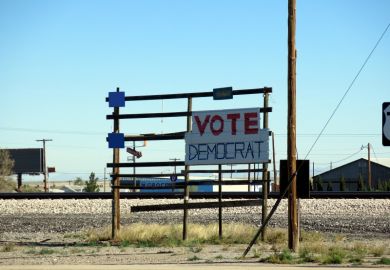A Canadian professor has recorded two hour-long You Tube lectures criticising his university’s policy on “political correctness” and objecting to government legislation that would prohibit discrimination based on gender identity and gender expression.
Jordan Peterson, professor of psychology at the University of Toronto, hit out at the institution’s new policy to make anti-racism and anti-bias training mandatory among human resources (HR) staff, stating that it amounts to “political training” as the views it promotes are “associated with radical Left ideology" and it is predicated on the assumption that group-based oppression is "everywhere".
He added that it assumes that racism and bias exists at the university and that training is the best way to address this.
Professor Peterson suggested that HR staff should “refuse to subject themselves to re-education regarding their putative racism and bias, unless they want to convict themselves”.
His comments were made in the second chapter of a three-part video lecture series, “Political Correctness II: A universally informative case study”, posted on 3 October.
In the first chapter, “Professor against political correctness: Part 1: Fear and the Law”, posted on 27 September, Professor Peterson said there is a “misapprehension that everyone in academia is politically correct”.
“That is true very frequently among social scientists, about 20 per cent of whom identify themselves as Marxists,” he said, but added: “I’m not politically correct."
He continued: “I know something about the way totalitarian and authoritative states develop and I can’t help but think I’m seeing a fair bit of that right now.”
He criticised a Canadian government bill proposing to outlaw harassment and discrimination based on gender identity and gender expression, stating: “I don’t recognise another person’s right to determine what pronouns I use to address them. I won’t do it.”
Regarding non-binary gender identities, he said: “I don’t know what ‘neither’ means because I don’t know what the options are if you’re not a man or a woman.”
He added: “It’s not obvious to me how you can be both because those are by definition binary categories.”
Professor Peterson admitted that he was “scared” that “some of the things that I say in my lectures now might be illegal”, as they may amount to “hate speech”.
A. W. Peet, a physics professor at the University of Toronto who identifies as non-binary and uses the pronoun “they”, told the university’s student newspaper The Varsity: “It doesn’t really matter whether he thinks we exist or not because we do. I just wanted to say, ‘Excuse me, I exist. I’m non-binary and I’m also a full professor with the University of Toronto with tenure.'”
Register to continue
Why register?
- Registration is free and only takes a moment
- Once registered, you can read 3 articles a month
- Sign up for our newsletter
Subscribe
Or subscribe for unlimited access to:
- Unlimited access to news, views, insights & reviews
- Digital editions
- Digital access to THE’s university and college rankings analysis
Already registered or a current subscriber?





